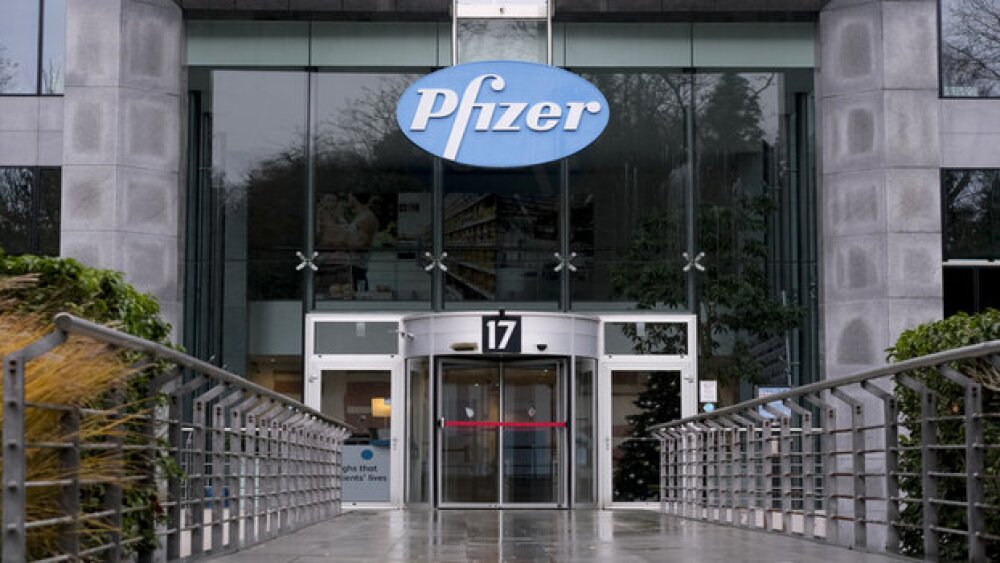The legal complaint, filed with the Scripps Research Institute, alleges that Dexcel Pharma Technologies’ plan to sell a generic version of Pfizer’s Vyndamax (tafamidis) infringes on three patents.
Pictured: Pfizer in Brussels/iStock, Alexandros Michailidis
Pfizer has filed a patent lawsuit to block the approval of a generic copy of Vyndamax (tafamidis), the pharma giant’s fast-growing blockbuster heart disease drug.
In the lawsuit, details of which were first reported by Bloomberg Law, Pfizer and the Scripps Research Institute argue that Dexcel Pharma Technologies’ plan to sell a generic version of Vyndamax infringes on three patents. Dexcel in June 2023 informed Pfizer that it had filed for FDA approval of a copy of the transthyretin amyloid cardiomyopathy (ATTR-CM) treatment.
Pfizer, seeking to protect a family of products that generated $818 million in the U.S. in the first half of the year, has responded with a lawsuit that seeks to delay approval of Dexcel’s generic until after the last of three patents has expired. One of the patents is scheduled to expire in 2035.
According to the lawsuit, Dexcel is seeking approval to sell generic tafamidis 61-mg capsules in the belief that the patents are “invalid, unenforceable and/or will not be infringed” by its generic. Pfizer disagrees. The lawsuit makes the case that the three patents, two of which expire in the next 12 months, are valid and would be infringed by the manufacture and sale of Dexcel’s generic copy.
Intellectual property has threatened to disrupt the tafamidis growth story since Pfizer suffered a delay to the approval of Vyndamax in the U.S. Pfizer bought the developer of the drug in 2010 but two years later the FDA rejected its application for approval. Vyndamax ultimately won approval in the U.S. in 2019, by which time the expiry of certain patents was already on the horizon.
Pfizer won approval for two versions of tafamidis: Vyndaqel, an 80-mg, once-daily dose given as four 20-mg capsules, and Vyndamax, a 61-mg free acid form taken as a single capsule. With the U.S. basic product patent set to expire in 2024, analysts speculated that Pfizer would prioritize Vyndamax over Vyndaqel. Vyndamax has a crystalline form patent that expires in 2035, but faces a challenge from Dexcel.
The ability of the patent to withstand Dexcel’s challenge will influence Pfizer’s growth rate in the years to come. Sales of the Vyndaqel family of products grew 46% in the U.S. in the first half of the year. The jump in revenue, which Pfizer attributed to “continued strong uptake” in ATTR-CM, helped the company overcome falling sales of Ibrance, the Prevnar family and Inlyta.
Nick Paul Taylor is a freelance pharmaceutical and biotech writer based in London. He can be reached on LinkedIn.






